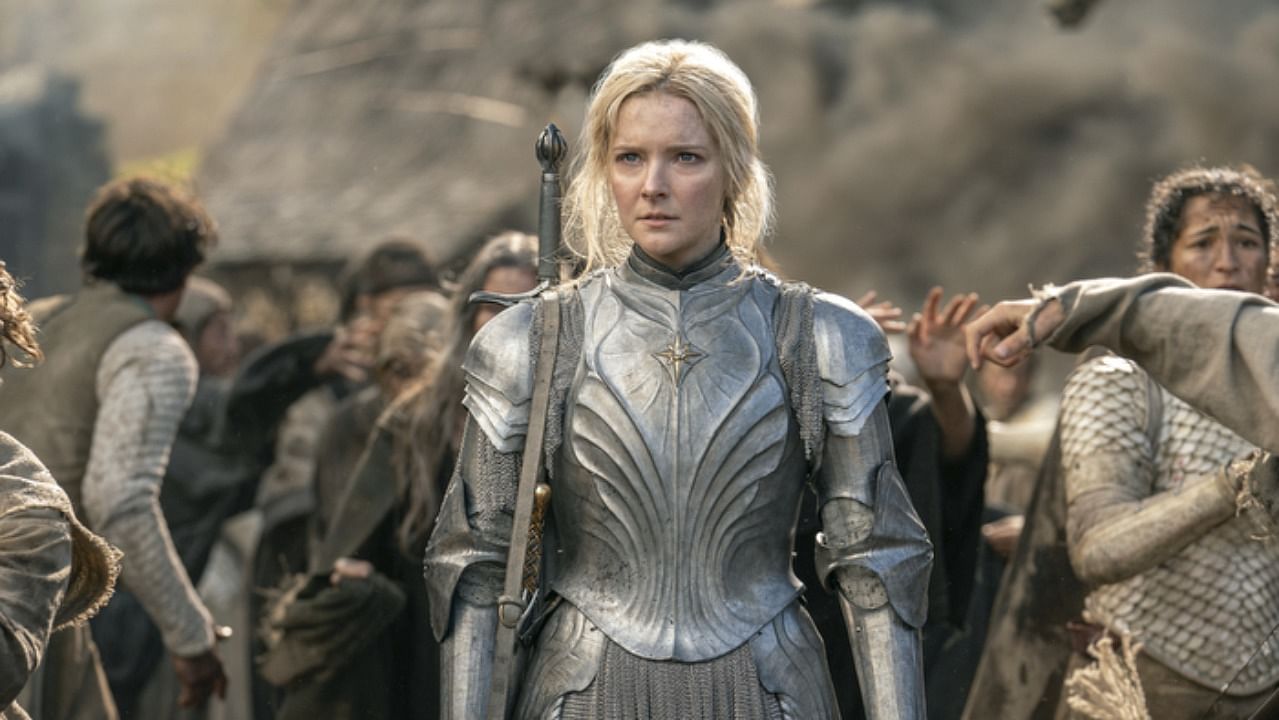
The Lord of the Rings: The Rings of Power
Showrunner: J D Payne
Cast: Morfydd Clark, Robert Aramayo, Charles Edwards, Owain Arthur, Charlie Vickers
Score: 3.5 stars
"All hail the great misdirection" should probably be the tagline for The Lord of the Rings: The Rings of Power, a prequel series loosely based off Tolkien's works and which takes its own road to getting to the Last Alliance of Elves and Men.
The show, much like the main The Lord of The Rings trilogy, lives and dies on its use of interpersonal relations, though one might say its use of visual effects somewhat outweighs its commentary on subject matters like human relations and the concept of adventure and bravery.
Set in the Second Age, the show, as mentioned in the title, deals with the events that lead to the forging of the Rings of Power and The One Ring. On the whole, it follows younger version of key characters like Elrond (Aramayo) and Galadriel (Clark), who play an important role in the destruction of the One Ring in the Third Age. Being the younger Elves they are here, though, allows an interesting dimension to their characters.
Elrond, for instance, is not the jaded, somewhat impatient Lord of Rivendell but is a more optimistic scribe with self-doubt and a strong sense of friendship. Galadriel is not the enigmatic Lady of Lothlórien but a headstrong (some might say self-centred) warrior with a single-minded obsession to find and kill Sauron after the fall of his master, Morgoth. They both separate early in the show, each going their own way - though they are eventually drawn together again, figuratively and literally, as the schemes of Sauron play out ever so subtly through the hands of many other characters.
There is also the case of the harfoots, a hobbit clan, whose members Nori and Poppy encounter a certain Stranger with a proclivity for magic, getting insects to do his bidding, and with a rather overfond attachment to his first friends who happen to be hobbits. The clues are all there, but the series deliberately veers into misdirecting viewers as to the possible identity of the grey-clothed giant. It's a strategy it repeats with a certain snarky but good-willed character who seems to have a good rapport with Galadriel, especially during their stint at Númenor, a far-off land where Men reign.
In terms of scale, The Rings of Power handily competes with The Lord of The Rings with its grand presentation and sets. Between Númenor itself, the mines of Khazad-dûm, and the Southlands (and what it turns into), there is a lot to dissect in terms of visual "oomph" and to a certain extent, the culture of the races of the world. By the end of the season, however, events are clearly set into motion that are likely to rend the relations between Elves and Dwarves, Elves and Men, and to a certain extent between Men themselves -- though the series is content with just setting things up, with minimal payoff.